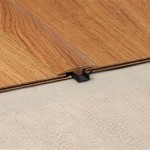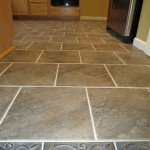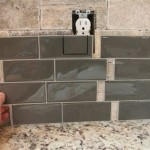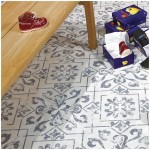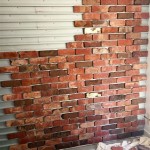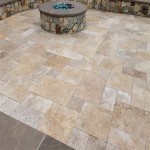How To Remove Hard Water Stains From Bathroom Floor Tiles
Hard water stains are a common problem in many homes, particularly in areas with high mineral content in their water supply. These unsightly white or yellowish marks can mar the appearance of bathroom floor tiles, making them look dull and aged. Fortunately, removing hard water stains is achievable with a combination of household cleaners and a little elbow grease. This article will guide you through the process, providing step-by-step instructions and essential tips for achieving a sparkling clean bathroom floor.
Understanding Hard Water Stains
Hard water contains high levels of minerals, primarily calcium and magnesium. When water evaporates from surfaces, these minerals are left behind, forming a residue that crystallizes over time. These mineral deposits are what appear as hard water stains. While these stains are primarily an aesthetic issue, they can also be a sign of mineral buildup in your plumbing system, which can lead to other problems like clogged pipes and reduced water pressure.
Choosing the Right Cleaning Solution
Several readily available cleaning solutions can effectively remove hard water stains from bathroom floor tiles. The best option depends on the severity of the stains and the type of tile material. Below are some common choices, along with their pros and cons:
- White Vinegar: A natural and inexpensive option, white vinegar is effective in dissolving mineral deposits. It is safe for most tile materials and can be mixed with water to create a cleaning solution.
- Lemon Juice: Similar to vinegar, lemon juice also has acidic properties that can break down hard water stains. It can be used alone or combined with baking soda for a slightly abrasive cleaning action.
- Commercial Tile Cleaners: Many commercial tile cleaners are designed specifically for removing hard water stains. These cleaners typically contain stronger chemicals that can be more effective on stubborn stains. However, it is essential to read the product label carefully and follow the manufacturer's instructions.
- Baking Soda: Baking soda is a mild abrasive that can be used to scrub away stubborn hard water stains. It is effective for removing stains from grout lines. However, it should be used with caution on delicate tile surfaces.
Step-by-Step Cleaning Process:
Once you have chosen a cleaning solution, follow these steps to remove hard water stains from your bathroom floor tiles:
- Prepare the area: Clear the bathroom floor of any obstacles, such as rugs, towels, or toiletries. Wear protective gloves and ensure adequate ventilation.
- Apply the cleaning solution: Apply the chosen cleaning solution to the affected areas of the tiles. For vinegar or lemon juice, mix a solution of equal parts water and cleaning agent. For commercial cleaners, follow the product instructions. Use a soft-bristled brush or cloth to spread the solution evenly over the stains.
- Scrub the stains: Use a scrub brush or sponge to scrub the stains gently. For stubborn stains, you can try a stronger abrasive cleaner or a pumice stone. However, always test the cleaner on a small, inconspicuous area first to ensure it does not damage the tile.
- Rinse and repeat: After scrubbing, rinse the tiles thoroughly with clean water. If the stains persist, repeat steps 2 and 3 until they are removed.
- Dry the tiles: Dry the tiles completely using a clean towel or let them air dry.
Preventing Future Hard Water Stains:
While removing existing hard water stains is important, preventing future stains is crucial for maintaining a sparkling clean bathroom. Here are some tips to help minimize the formation of new stains:
- Install a water softener: A water softener is the most effective solution for tackling hard water issues. It removes minerals from your water supply, preventing the formation of stains and protecting your plumbing system from damage.
- Wipe down surfaces regularly: Regularly wiping down bathroom floor tiles after each shower or bath can help prevent mineral buildup and the formation of stains.
- Use a squeegee: After showering, use a squeegee to remove excess water from the bathroom floor tiles. This reduces the amount of water that evaporates and leaves behind mineral deposits.
- Ventilate your bathroom: Ensure adequate ventilation in your bathroom by using a fan or opening a window after bathing or showering. Proper ventilation helps to dry the surfaces quickly and prevent mineral buildup.

3 Best Ways To Get Rid Of Hard Water Stains From Bathroom Tiles Kent

How To Remove Hard Water Stains From Bathroom Floor Tiles

Stone Pro How To Remove Hard Water Spots In Showers

How To Remove Hard Water Stains Chet S Cleaning

How To Remove Hard Water Stains In Bathroom Tiles

6 Cleaning S To Remove Hard Water Stains From Tiles

Shower Cleaning Makeover Removing Limescale From Glass Door And Grout Tiles

How To Clean Bathroom Tiles At Home Floor

Remove Hard Water Stains From Bathroom Floors Bond Cleaning In Adelaide

How To Remove Hard Water Stains From Bathroom Ceramic Tiles Floor With Household Items
Related Posts


